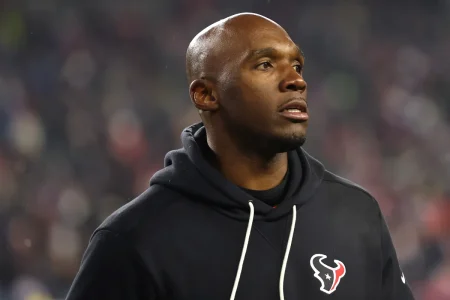Remembering Charlie Kirk: A Legacy of Faith, Courage, and Bridge-Building
At just 31 years old, Charlie Kirk left behind a legacy that transcended political commentary and resonated deeply with people of various faiths and backgrounds. As thousands gather at State Farm Stadium in Glendale, Arizona to honor his memory, Rabbi Pinchas Taylor of the American Faith Coalition offers a poignant perspective on Kirk’s impact, particularly within the Jewish community. In a time of rising antisemitism, Kirk stood as a steadfast ally who demonstrated that true leadership involves building bridges rather than walls, embracing differences rather than exploiting them for political gain.
Rabbi Taylor describes Kirk as “far more than a political commentator,” but rather as “a man of deep and unapologetic faith who lived every day guided by conviction and compassion.” This characterization highlights Kirk’s authenticity and commitment to his principles, qualities that enabled him to connect with diverse audiences despite America’s increasingly polarized landscape. Kirk’s unwavering support for Israel and the Jewish community came at a crucial moment when many Jewish Americans felt increasingly isolated and vulnerable. The rabbi emphasized that Kirk “loved his family fiercely, stood shoulder-to-shoulder with the Jewish people, and defended Israel with clarity and courage,” providing reassurance to Jews across America “that they were not alone” during challenging times.
What distinguished Kirk from many contemporary political figures was his commitment to reasoned discourse in an era dominated by inflammatory rhetoric and tribal loyalties. Even within his own political circles, where extreme viewpoints and conspiracy theories often dominated conversations, Kirk maintained what Rabbi Taylor describes as “a voice of sanity, reason and principle.” Rather than avoiding disagreement, Kirk welcomed it, recognizing that personal and collective growth emerges from the willingness to “listen, debate and engage with dignity.” This approach stands in stark contrast to the confrontational style that characterizes much of today’s political discourse, offering a model of engagement that could help heal America’s divisions.
At the heart of Kirk’s worldview was a deep appreciation for America’s foundational values, which Rabbi Taylor connects to “the Hebrew Bible, the shared Judeo-Christian tradition that teaches us about justice, freedom, and the divine image within every human being.” This perspective transcends purely political considerations, pointing to Kirk’s understanding that America’s strength derives not merely from economic or military power, but from ethical and spiritual principles that affirm human dignity and social responsibility. The rabbi’s observation that Kirk’s “life was a testimony to the power of living by faith and building bridges across communities” underscores the potential for religious conviction to foster unity rather than division when guided by compassion and respect.
As America continues to navigate profound social and political challenges, Kirk’s example offers valuable lessons about the importance of maintaining core principles while engaging respectfully with those who hold different views. Rabbi Taylor suggests that by returning to “God-centered values,” Americans can find common ground despite their differences, enabling the nation to “not only endure—it will rise higher, shine brighter, and become stronger together.” This vision of national renewal based on shared ethical foundations rather than partisan allegiance provides a constructive path forward in an era often characterized by cynicism and distrust.
The memorial service, featuring speakers including former President Donald Trump and Kirk’s widow, Erika Kirk, represents not just a moment of grief but also an opportunity to reflect on how one individual’s commitment to faith, family, and principled engagement can inspire others to build a more united and compassionate society. While Kirk’s death at such a young age represents a profound loss, Rabbi Taylor encourages Americans to “carry forward his message” by embodying the values he championed. In doing so, Kirk’s impact may continue to be felt long after his passing, inspiring future generations to approach differences with curiosity rather than contempt, and to seek common ground even in the midst of disagreement.















